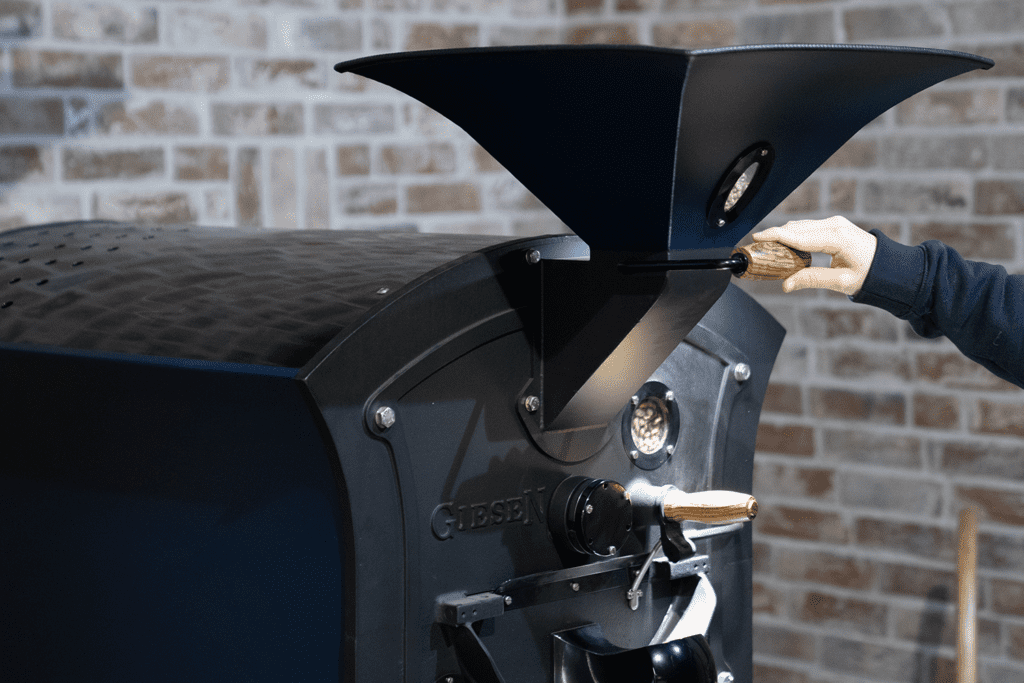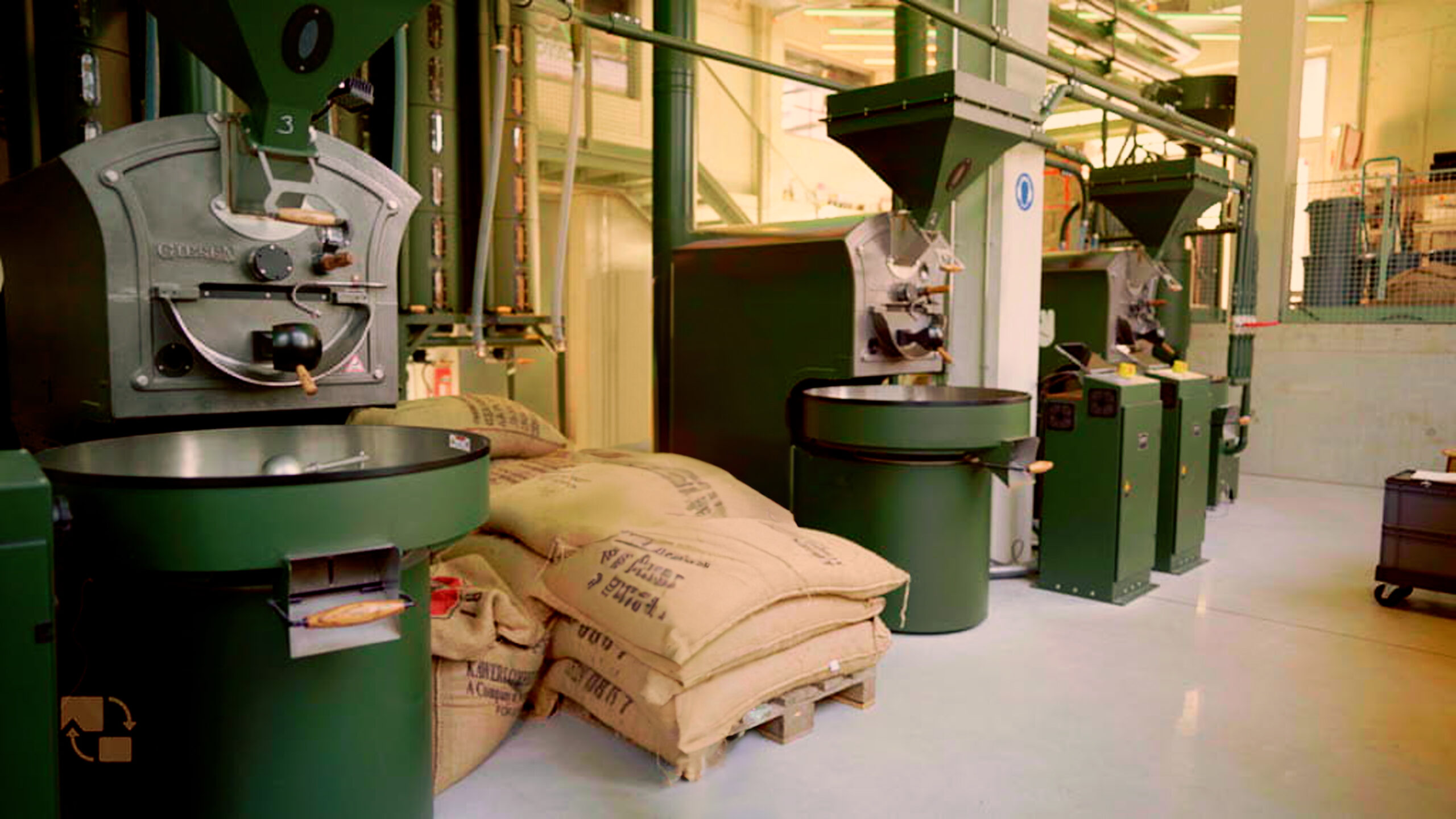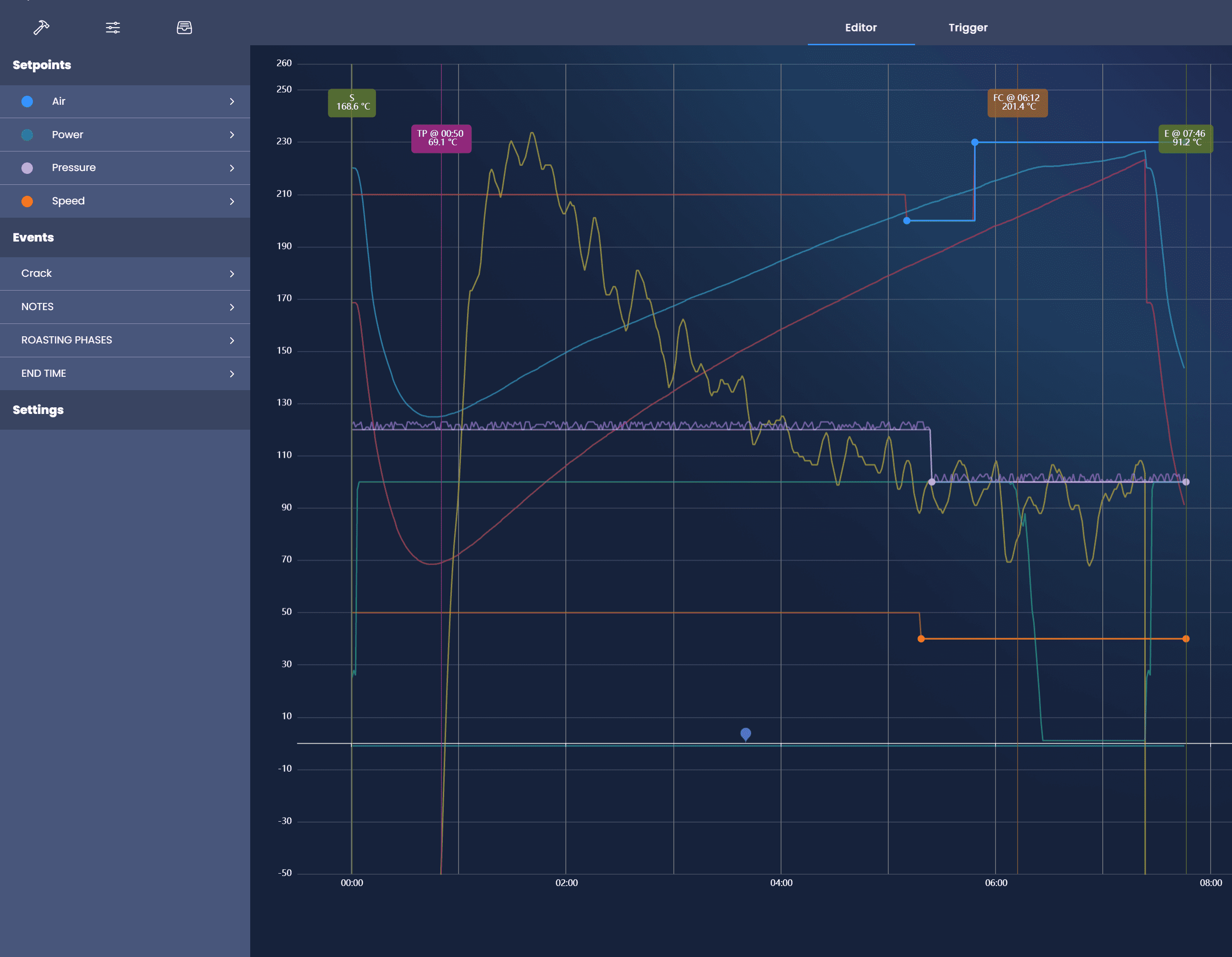Everyone drinks coffee, this is a moment of peace, an energy boost or simply to connect with someone. But who are the people roasting your coffee? You’re listening to the Giesen Roastcast, where we talk about everything that has to do with roasting and your business in the coffee industry. Cisca roasted coffee year in, year out for over half a decade. With her own coffee roastery and as an ambassador of Giesen Coffee Roasters, she wants to show you what it means to roast coffee for a living. So grab a cup of coffee, sit back and relax. This is the Giesen Roastcast.
In this episode of the Roastcast, Giesen ambassador Willem Boot talked about his background story. The fact that he inherited the love for coffee from his father, and all the big task he still sees for himself in the coffee industry.
You can also listen to the episode here:
Summary Roastcast 3 – Willem Boot
Cisca: ‘You are one of the best coffee pioneers in the world. Your parents were the founders of Boot Coffee. Now it belongs to your brother. Your family has quite an impressive resumé in the world of coffee. Are you still involved in the family business?’
Willem: ‘I am not a shareholder of the business. When my father retired many years ago, my brother and I took over the business. We inherited the coffee store in a small town in The Netherlands. My brother and I started the foundations of what is now Boot Coffee. My involvement now with the business, is that my brother and I collaborate in some of the programs that my business offers. With boot coffee, there are programs and my brother is a big fan of these and he supports them.’
Cisca: ‘The first time I read about you, was in a book. By reading that book, I realized that the Dutch have made quite some impact in the coffee industry. How do you see your role in the industry?’
Willem: ‘I inherited the love for coffee from my father. He was my first teacher, my mentor. After I completed my studies in Amsterdam, I moved to the USA because I just wanted to experience the world outside the Netherlands. There is a good English term for how I see myself. They call it ‘maverick’. This is a person who loves to pioneer, innovate, and always disrupt to some degree. And so, I see myself as a pioneer because I must be able to start some work early on in follow-up with my father’s vision.
When it comes to the disruptive element about my work in coffee, is that coffee is a very traditional industry. We still conduct the business in various ways, the same way we did years ago. You have traders, farmers, importers, roasters. That structure has not changed in the last 100 years. Coffee farmers are unfortunately still very poor. And traders, are unfortunately still very wealthy. I have nothing against the wealthy, but I feel that traders can do more to help farmers. That’s where I still see a big task for myself in this work.’
Cisca: ‘I read that your fundamental mission is improving the quality of every aspect of coffee. Is this also what drives you to your specific mission?’
Willem: ‘Yes. Because the quality of coffee in the widest sense is not only about the flavor of the coffee. It is everything that surrounds the production, including the livelihoods of the farmers and the impact we have on the environment. The impact also involves how we deal with our own employees or how our actions impact others. So quality is a very wide concept. I think, as entrepreneurs, we have an opportunity to help farmers. I do like programs like Fairtrade to help farmers but in the end, I think the most sustainable way to guarantee that farmers get more income in long term, is improving the quality.’
Cisca: ‘You are right, but I do think it also starts with the roasters. As a roaster, we should make sure the quality of the coffee is good and not only the flavors, but also the quality of the beans and the circumstances of the farmers. That’s something we also can improve as roasters. I think it’s important we also tell our customers about it.’
Willem: ‘That’s true, but also hard sometimes. If you are a retailer there is only so much information you can provide to your customers. Because customers don’t have time for that. But the key question is how much information you can bring with the coffee. So, we as roasters must be smart with this. It’s challenging.’
Cisca: ‘One of the things I like to ask you is why you decided to buy a coffee farm? How does that even work? I am very curious about that.’
Willem: ‘Panama has been a country that already had become very familiar to me. My brother and I started buying coffee through direct trade in Panama in 1996. That became an important coffee for us, so I built a lot of relationships in Panama with various producers. In 2004 I was a judge in a panel of coffee tasters in Panama. The Geisha coffee was presented there and it blew me away. I had been drinking the most marvelous coffee from different countries but now there was this new coffee, and it blew me away. I experienced it as a new journey for me. My mission in coffee is not just about roasting or consulting but it’s about exploring quality in its deepest essence. And of course, the quality starts at the farm level. That’s how I ended up buying 5 hectares in Panama. So, the reason why I did this was for a big part the passion I felt so strongly for this coffee I wanted to produce myself.’
Cisca: ‘You keep breaking all kinds of records with the prices paid for your green coffee. And I was wondering how much it really costs to create such valuable coffee. I’m not talking about the money value but the energy, time, and effort to create it.’
Willem: ‘Being a coffee farmer or producer is a very risky business. Meaning, every year mother nature has some surprises for you and besides that, there are also gangs that can steal your harvest. So, there are a lot of risks.’
Cisca: ‘What is the greatest improvement we as roasters can make in our business? Because you have a mission, but how can we help as roasters? So that you are not the only one trying to improve the quality of coffee. How can we help you?’
Willem: ‘For a roasting company, especially when you are fresh and young and you have a lot of energy, I think before you start helping others, first is it important to set I economic base for your business. I feel in order to be able to have an impact by helping programs, it first is important to have a solid business. To do good in the world, you need to be able to pay for it. You can only do that if your own business is healthy. I think that is the first important lesson.
Secondly, you need to be able to do what you are trying to do, very well. This means that you don’t necessarily have to buy the best coffee, but you must make wise decisions about the coffee you select. And you must do a good cupping and tasting protocol in order to know which coffees you’re buying. And then, when you are getting your hands on your roasting machine, you should develop the profiles well. After that, you can start thinking about how you can do good in the business of coffee.’
Cisca: ‘Is there something you want to tell people. Something we really need to know about coffee?’
Willem: ‘I think from the perspective of a roaster, the most important thing is to focus on the important areas of coffee. Don’t try to know everything. Depend on some specific coffees rather than trying to know everything about all the coffees. Secondly, you will want to understand who is behind these coffees. What is the history of these farmers? Maybe there are some unique stories to tell about. And last, you want to ensure you can be a great barista for these coffees. You should brew them the best way yourself.’




